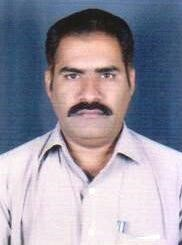Welcome to
Prakasam
Engineering College
The Department of Civil engineering is established in 2013.The Civil Engineering Department administers a Civil Engineering program that will produce graduates who are ready to work,high in quality,skilled in information technology and are professional in nature. The department also strives to undertake a program in community service and to disseminate advanced technical knowledge to engineers, other professionals and the public. The department of Civil Engineering ensures that the Students have the opportunity to work with latest equipment both in the laboratories and while on project with various construction companies in and around the city. Universal Testing machines, UV Spectrophotometer, 200 T Compressive Testing Machine, Constant heat B.O.D. Incubators are few instruments that they regularly use during their sessionals. Fields in which the faculty is specialized are Structural Engineering, Geo-Technical Engineering,Hydrology, Water Resources, Foundation Engineering, Construction Management, Entrepreneurship etc. To become a study Program that is accepted as a model in the field of civil engineering education and leads to the application of civil engineering to provide quality professional and community services.

Dr. Rayasam. Venkata Siva Raghava Sarma
Associate Professor & H.O.D
25 Years
8.5 Years
Strength of Materials, Geo Technical Engineering, Building Planning & Drawing, Water Resources Engineering Estimation Specifications and Contracts, Engineering geology.
16 Years of Industrial experience in various positions in Civil and Structural works like Tunnel, Powerplant construction, Building Construction, Canal works, watershed works, Pipeline works and procurement activities etc. and worked with government departments and corporate firms.
The department has number of well equipped laboratories and provides excellent facilities for learning.
Mallavaram Dam visited on Dt:10-08-2019
Pula Subbaiah Veligonda Project Site visited on Dt:09-08-2018
| S.No | Name of the Faculty | Achivement | Year |
| 1 | Dr. R.V.S. Raghava Sarma | Acharya Excellence Awards 2020 "Excellence Student And Best Research Scholar Award" | 2020 |
| 2 | Dr. R.V.S. Raghava Sarma | Awarded Ph.D Degree From MEWAR University | 2022-23 |
| 3 | Dr. R.V.S. Raghava Sarma | Published a book on "Basics Of Civil And Mechanical Engineering" | 2023-24 |
| S.No | Title of the Paper | Name of the Journal | Year |
| 1 | Utilization of waste plastics In Flexible Pavements | Journal of Engineering Sciences | Oct-19 |
| 2 | Stabilization of Pavement Subgrade by using flyash Reinforced With Bitumen Coated Chickenmesh | International Journal of Research And Analytical Reviews | Jun-19 |
| 3 | Subgrde Stabilization by using flyash reinforced with bitumen coated Bamboo mesh | Journal of Emerging Technological and Innovative Research | Oct-19 |
| 4 | Analytical study on the pavement construction with the utilization of industrial wastes | International Journal of Early Childhood Special Education | 2022 |
| 1 | Charted Engineer | Indian Institution of Engineers (India) - Kolkata |
| 2 | Membership of Indian Institution of Engineers (India) | Indian Institution of Engineers (India) - Kolkata |
| 3 | Fellowship of Institution of Valuer | The Indian Institution Of Valuers - Pune |
| ROLL NO | NAME OF THE STUDENT | PERCENTAGE | RANK |
| 21F95A0108 | VENKATA NAGA BRAHMAM KASIBISI | 71.96 | 1 |
| 20F91A0140 | PEDDINTI SHAKUNTALAMMA | 71.69 | 2 |
| 20F91A0144 | RAMAVATH SEETHA BAI | 69.75 | 3 |
| ROLL NO | NAME OF THE STUDENT | PERCENTAGE | RANK |
| 19F91A0101 | KALYANI PALAKONDA | 73.96 | 1 |
| 19F91A0118 | SESHUBABU KONDABATHINA | 68.31 | 2 |
| 19F91A0104 | AKASH SALIKINEEDI | 65.17 | 3 |
| ROLL NO | NAME OF THE STUDENT | PERCENTAGE | RANK |
| 18F91A0112 | MANASA INAGANTI | 75.37 | 1 |
| 18F91A0103 | ARUNACHAKRAVARTHY CHAVALAM | 73.77 | 2 |
| 18F91A0121 | RAJASEKHARA REDDY KANUMARLA | 73.39 | 3 |
| ROLL NO | NAME OF THE STUDENT | PERCENTAGE | RANK |
| 18F95A0106 | PAVANKUMAR CHEEPINAPI | 78.40 | 1 |
| 17F91A0111 | HARIKRISHNA PAPANABOINA | 77.10 | 2 |
| 17F91A0132 | SUDHEER NANNAM | 73.50 | 3 |
| ROLL NO | NAME OF THE STUDENT | PERCENTAGE | RANK |
| 16F91A0136 | VEERANARAYANA R | 76.83 | 1 |
| 16F91A0117 | MAHESH BABU K | 76.05 | 2 |
| 17F95A0111 | VENKATESWARLU KURICHETI | 74.09 | 3 |
| ROLL NO | NAME OF THE STUDENT | PERCENTAGE | RANK |
| 15F91A0118 | NAVEEN THIRUMANISETTY | 86.67 | 1 |
| 15F91A0104 | BRAHMAREDDY MUTTUMULA | 85.17 | 2 |
| 15F91A0124 | RAMESH BOLLA | 84.67 | 3 |
| ROLL NO | NAME OF THE STUDENT | PERCENTAGE | RANK |
| 14F91A0 130px | MOHAMMAD RAFI SHAIK | 84.00 | 1 |
| 14F91A0139 | RADHA MOUNIKA DIVVELA | 82.13 | 2 |
| 14F91A0156 | VENKATA KRISHNA THAMMINENI | 81.07 | 3 |
| ROLL NO | NAME OF THE STUDENT | PERCENTAGE | RANK |
| 13F91A0123 | PAVAN KUMAR REDDY D | 80.13 | 1 |
| 13F91A0142 | SRIDEEPTHY S | 79.20 | 2 |
| 13F91A0113 | LAKSHMI PRASANTHI K | 78.93 | 3 |
| S. No | Name of the Faculty | Designation |
| 1 | Dr. RAYASAM.V.S.RAGHAVA SARMA | ASSOCIATE PROFESSOR & H.O.D |
| 2 | Mr. V.HARI KISHORE | ASSOCIATE PROFESSOR |
| 3 | Mr. V. SRINU | ASSISTANT PROFESSOR |
| 4 | Mr. B.VISHNU CHAITANYA | ASSISTANT PROFESSOR |
| 5 | Mr. CH.VENGALA RAO | ASSISTANT PROFESSOR |
| 6 | Ms. K.SAILAJA KUMARI | ASSISTANT PROFESSOR |
| 7 | Mrs. SHAIK RAJIYA BEGUM | ASSISTANT PROFESSOR |